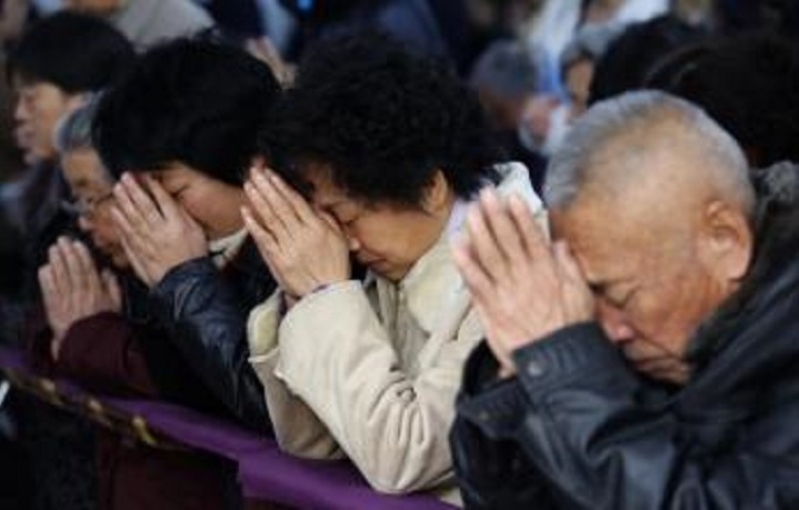
Chinese authorities raided a children's Bible class Saturday morning, shutting down a large underground church and confiscating 4,000 books as persecution escalates across the country.
The South China Morning Post reports that on Saturday, more than 60 police officers and officials stormed a children's Bible class at Rongguili Church in Guangzhou. Officials investigated the church until the evening and confiscated church property, including 4,000 books.
A Rongguili church member, who wasn't named, shared what happened when police came: "They read out law enforcement notices declaring our venue was an illegal gathering [that had engaged in] illegal publishing and illegal fundraising and confiscated all Bibles."
Officers recorded the identity of the worshipers, including the children, and took their phones.
"They then verified our identities again and warned us not to return [to the church] before letting us go," the person said.
Rongguili Church was set up in 1978 and attracts 5,000 worshipers every week, standing as one of China's leading underground churches. The raid makes it the third prominent Protestant unregistered church to be shut down by Chinese authorities this winter.
The Yuexiu district ethnic and religious affairs bureau announced that since all activities at Rongguili Church have been suspended, believers should look to worship at the 15 other registered Protestant churches in Guangzhou.
The closure of Rongguili Church comes less than a week after China's Early Rain Covenant Church -- one of the most influential house churches in the country -- was shuttered by authorities.
As part of the crackdown, more than 100 Christians from the church were snatched from their homes and streets across Chengdu, Sichuan province. Among those detained were church pastor Wang Yi, his wife Jiang Rong, church leaders, members, and seminary students.
In the lengthy letter written ahead of his arrest, the pastor said he is "filled with anger and disgust at the persecution of the church by this Communist regime, at the wickedness of their depriving people of the freedoms of religion and of conscience."
He vowed to use non-violent methods to stand by his faith and oppose the laws that he said were against biblical commandments. He reminded Chinese Christians that life is brief -- and the sufferings of the present pale in comparison to eternity.
"For this reason, I accept and respect the fact that this communist regime has been allowed by God to rule temporarily," he explained. "As the Lord's servant [16th century theologian] John Calvin said, wicked rulers are the judgment of God on a wicked people, the goal being to urge God's people to repent and turn again toward Him. For this reason, I am joyfully willing to submit myself to their enforcement of the law as though submitting to the discipline and training of the Lord."
Following the shuttering of Early Rain Church, U.S. faith leaders called on the international community to pray for those persecuted for their faith in China.
"Join me in prayer for these church members as they are under arrest - that the Holy Spirit would give them courage," tweeted Tim Keller, pastor of Redeemer Church in New York.
The move was also widely condemned by rights groups; Sam Brownback, the US ambassador at large for international religious freedom, cited the actions against the Early Rain Church and the reports from Xinjiang when announcing that China was one of ten countries designated a "country of concern" when it comes to religious freedom.
"My particular concern now for China is they've increased these actions of persecution against faith community," Brownback said.
"China isn't backing away from the religious persecution; it seems to be expanding."
In a statement, Human Rights Watch called the church closure evidence that under President Xi, the government has "further tightened control over Christianity in its broad efforts to 'Sinicize' religion or 'adopt Chinese characteristics' -- in other words, to ensure that religious groups support the government and the Communist Party,"
"The shutdown of a Protestant church in Chengdu epitomizes the Xi Jinping government's relentless assault on religious freedom in China," said Human Rights Watch.
"It makes a mockery of the government's claim that it respects religious beliefs."






